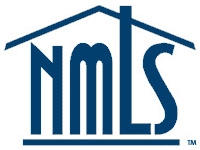Should You Use Your Home Equity to Pay Off High-Interest Debt?
For many homeowners, the idea of using home equity to pay off high-interest debt can be tempting. After all, the interest rates on home equity loans or lines of credit (HELOCs) are typically much lower than those on credit cards or personal loans. But before you decide to use your home as a financial tool, it’s important to weigh the pros and cons carefully.
The Benefits of Using Home Equity
One of the primary advantages of using home equity to pay off high-interest debt is the potential savings on interest payments. For example, if your credit card has an APR of 20% and your home equity loan has an APR of 5%, you could save a significant amount of money by consolidating your high-interest debts into a lower-interest home equity loan.
Another benefit is the simplicity and convenience of having only one monthly payment to manage. This can make it easier to stay on top of your finances and reduce the risk of missing payments, which could further damage your credit score.
The Risks Involved
While the potential savings on interest payments are appealing, it’s crucial to consider the risks involved in using home equity to pay off high-interest debt. The most significant risk is that you are converting unsecured debt (like credit card debt) into secured debt. This means that if you are unable to make payments on the home equity loan, you could potentially lose your home.
Additionally, it’s important to be cautious of falling into the same spending habits that led to high-interest debt in the first place. Without a clear plan to manage your finances and avoid accruing new debt, you could find yourself in an even worse financial situation down the road.
Things to Consider Before Making a Decision
Before deciding to use home equity to pay off high-interest debt, consider the following points:
- Analyze your spending habits: Ensure you have a budget in place and are committed to avoiding accumulating new high-interest debt.
- Compare interest rates: Ensure the interest rate on the home equity loan is significantly lower than your current high-interest debt.
- Emergency fund: Have an emergency fund in place to cover unexpected expenses, so you don’t rely on credit cards or other high-interest loans in the future.
- Consult a financial advisor: Seek professional advice to understand the long-term implications and ensure you are making the best decision for your financial situation.
Conclusion
Using home equity to pay off high-interest debt can be a smart financial move for some homeowners, but it’s not without its risks. Carefully evaluating your financial situation, commitment to managing your spending, and consulting with a financial advisor can help ensure you make the best decision for your financial health.














